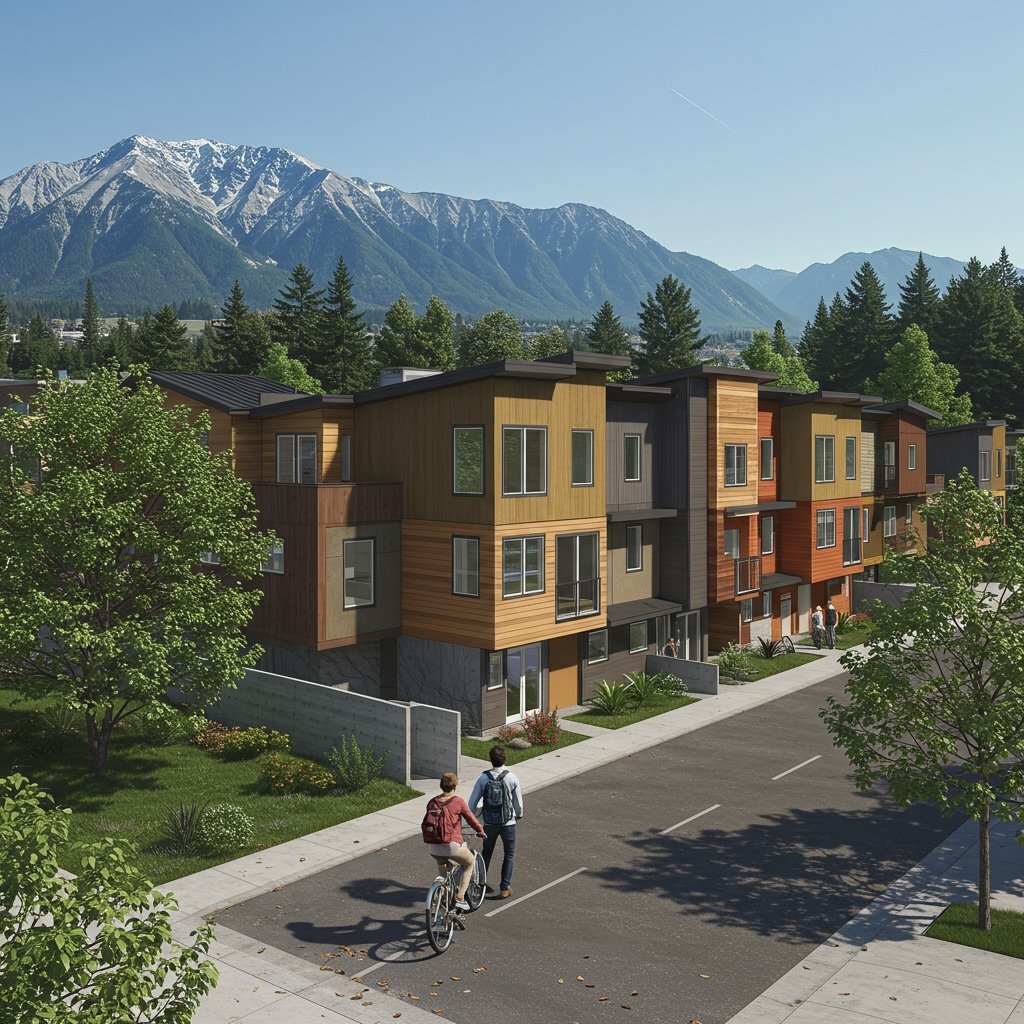Portland, Oregon — A key initiative designed to accelerate the approval of affordable housing projects in Oregon has yielded varied results, according to the first performance data released by state housing officials.
The report offers an initial look at a pilot program intended to cut through bureaucratic delays often blamed for slowing down construction and exacerbating the state’s persistent housing crisis. While proponents of expedited permitting hoped for widespread success, the data suggests that systemic challenges continue to impede progress, even with targeted interventions.
Understanding the Pilot Program’s Ambition
Launched with the aim of boosting housing supply, particularly units affordable to low- and moderate-income residents, the pilot program targeted specific developments for prioritized review by local permitting agencies. The underlying premise was that by streamlining the often complex and time-consuming permit process, construction could begin faster, bringing desperately needed housing online more quickly.
Permitting timelines have long been identified as a significant barrier to housing development across the United States, including in Oregon. Developers often cite lengthy approval periods as adding costs and uncertainty to projects, factors that can disproportionately impact affordable housing initiatives where margins are often tighter.
The state’s move to implement this pilot program reflected a growing recognition among policymakers that tackling the housing crisis requires addressing bottlenecks at multiple levels, including the regulatory environment.
Initial Findings: A Patchwork of Progress
The newly released data provides the first quantitative look at how effectively this fast-track approach has functioned in practice across participating municipalities. The findings paint a picture of uneven success.
Some local jurisdictions involved in the pilot reported notable improvements, demonstrating a capacity to significantly reduce the time it takes to review and approve building permits for eligible affordable housing projects. These localized successes offer a glimmer of hope, suggesting that focused efforts on process improvement can indeed yield positive results under the right conditions.
However, the report simultaneously highlights that these improvements were not universal. Many projects and municipalities still faced substantial delays, indicating that the pilot’s targeted approach was, in many cases, insufficient to overcome broader, deeply entrenched obstacles within the development and construction ecosystem.
Identifying Key Hurdles Beyond the Permit Office
The report is significant not just for showing where the pilot succeeded or fell short, but also for illuminating the underlying systemic hurdles that continue to challenge housing development in Oregon. The data points specifically to issues that extend beyond the control of the permitting office itself.
Prominent among these challenges are labor shortages. This refers not only to the availability of construction workers needed to build the housing but potentially also to staffing levels within local government departments responsible for reviewing permits and conducting inspections. A lack of qualified staff can inherently limit the ability to expedite processes, regardless of priority flags.
Another major constraint identified is infrastructure limitations. This can encompass a range of issues, such as insufficient water or sewer capacity in certain areas, inadequate transportation links, or limitations in utility connections (like electricity or broadband). A housing project, even with a fast-tracked building permit, cannot proceed if the necessary public infrastructure is not in place or cannot support the planned density.
These systemic issues suggest that while speeding up the permit review is valuable, it addresses only one piece of a complex puzzle. The report implicitly argues that the speed at which housing can be built is ultimately constrained by factors upstream and downstream from the permitting process.
Implications for Policy and Future Debate
The findings from this initial report are expected to significantly inform ongoing debates among Oregon lawmakers, state housing officials, and local government representatives. The data provides concrete evidence that simply prioritizing permits, while helpful in some instances, is not a panacea for the state’s housing woes.
The varied outcomes will likely fuel discussions about the future of targeted fast-track programs. Are they worth continuing? Do they need to be redesigned? Or should policymakers shift focus and resources toward addressing the more fundamental issues of labor availability, infrastructure investment, and other development costs?
The report’s emphasis on systemic hurdles suggests that a more comprehensive approach may be necessary – one that integrates permit reform with strategies to boost the construction workforce, invest in public infrastructure, and potentially explore other regulatory or financial incentives.
Conclusion: Acknowledging Progress, Confronting Reality
Oregon’s pilot program to fast-track affordable housing permits demonstrates that focused administrative efforts can, in some cases, yield positive results. The successes reported by some municipalities are valuable lessons in streamlining processes.
However, the overall picture presented by the state’s first data release is one of tempered expectations. The significant impact of labor shortages and infrastructure constraints underscores a critical reality: the pace of building much-needed affordable housing in Oregon is determined by a complex interplay of factors, many of which require solutions extending far beyond the permit office door.
As the state continues to grapple with its housing crisis, this report serves as a crucial reminder that while targeted reforms are important, overcoming the crisis will necessitate addressing the full spectrum of challenges hindering development, from planning and infrastructure to workforce availability and financing.




